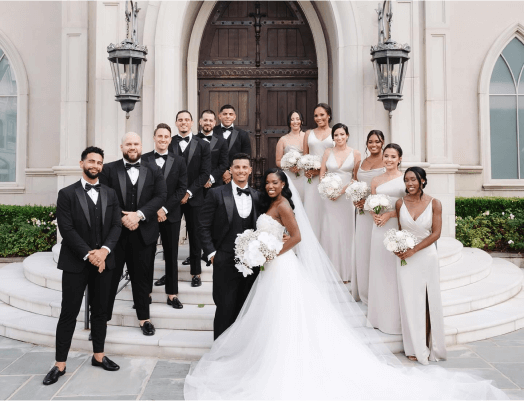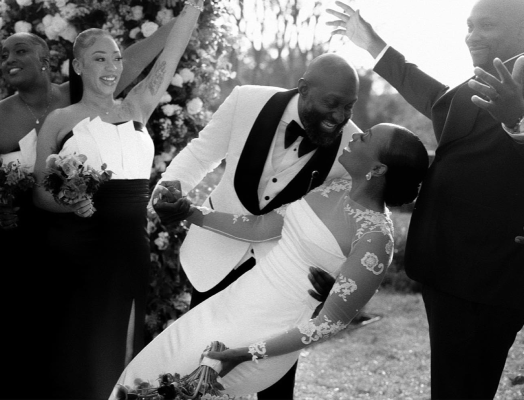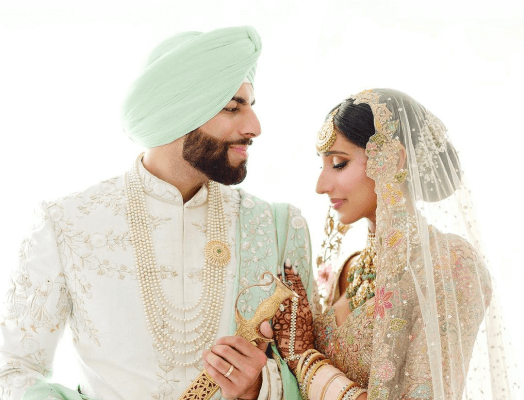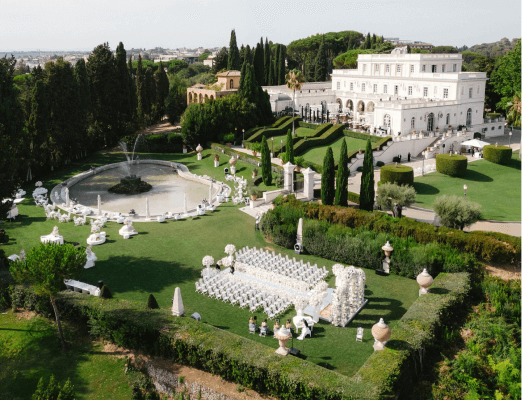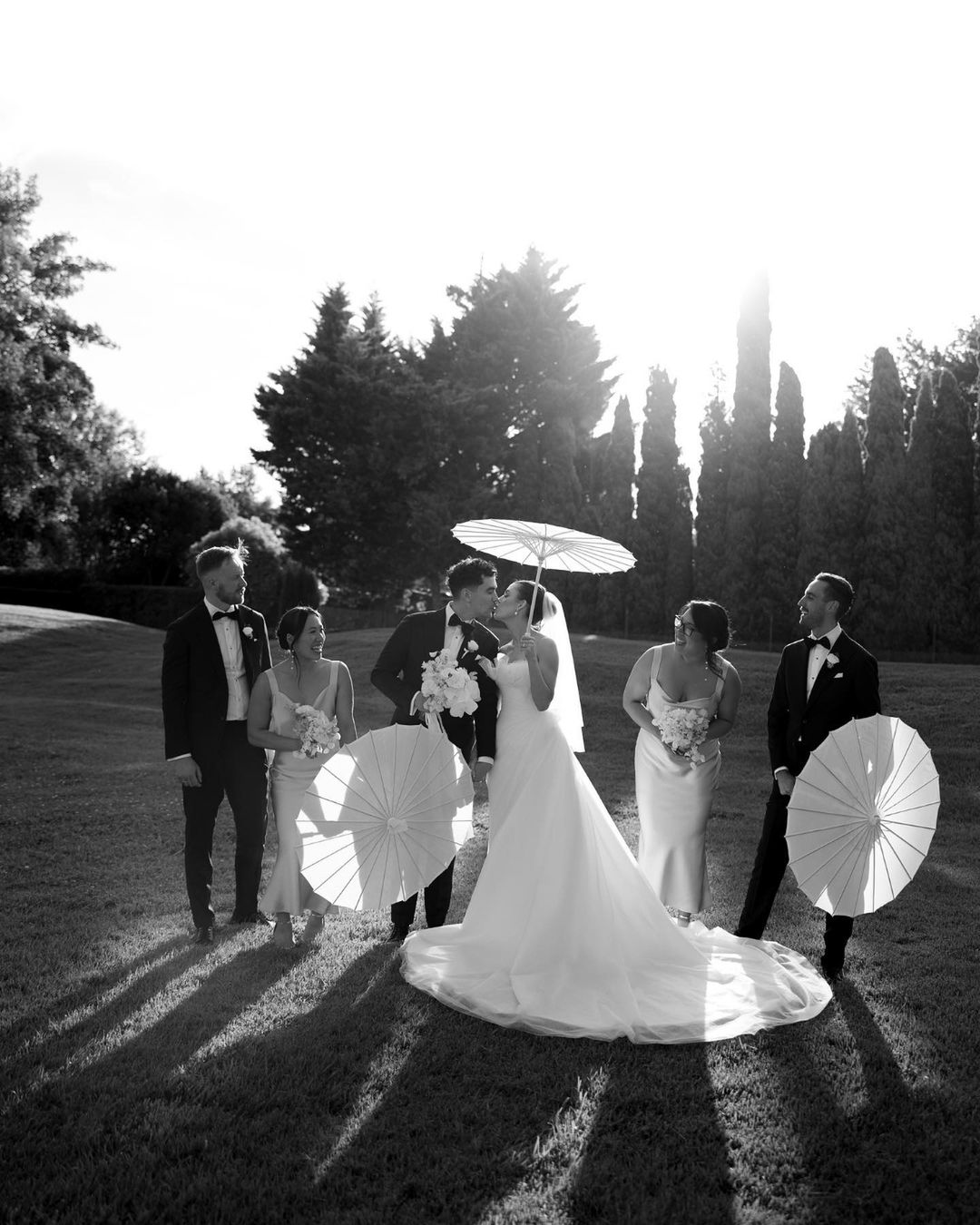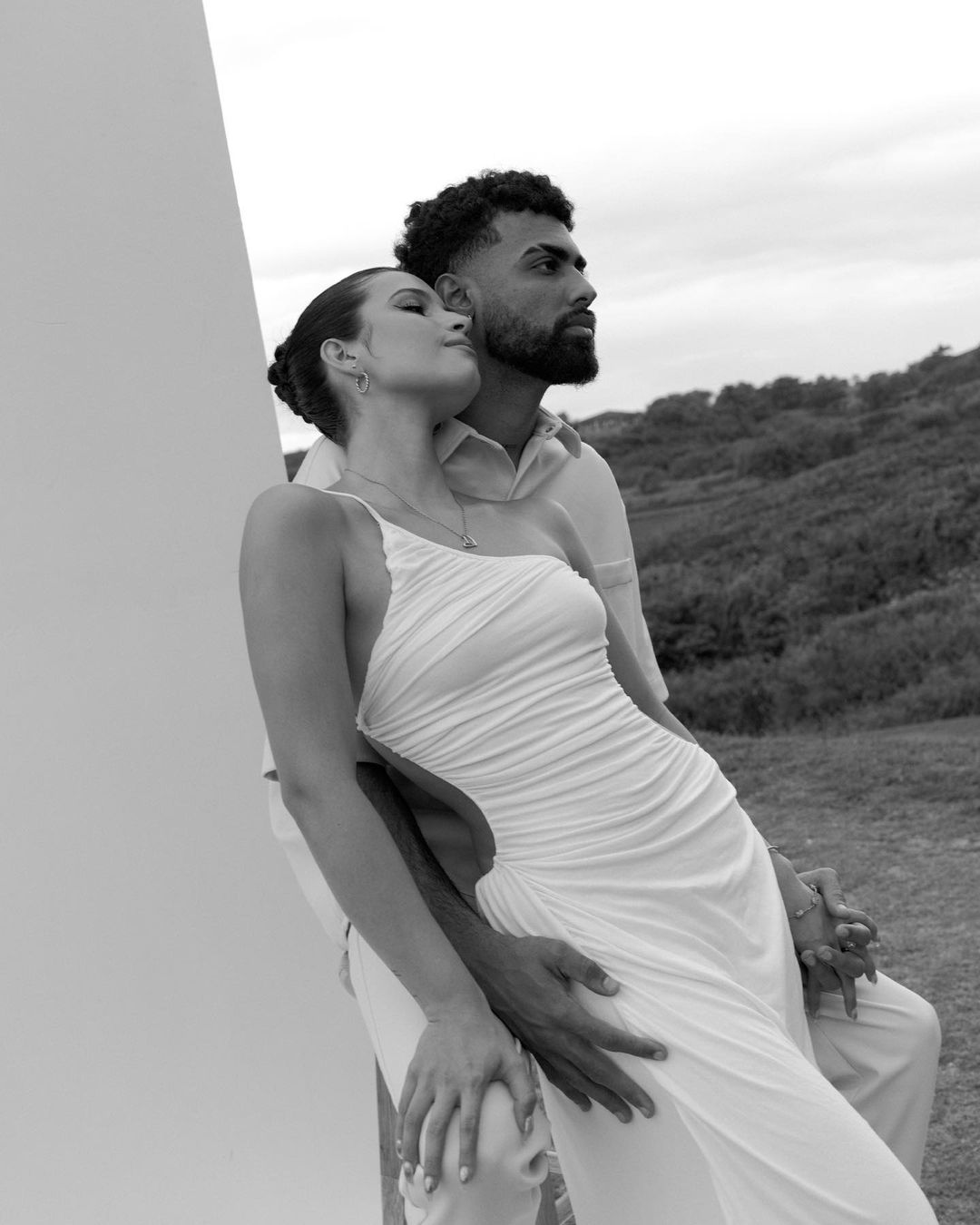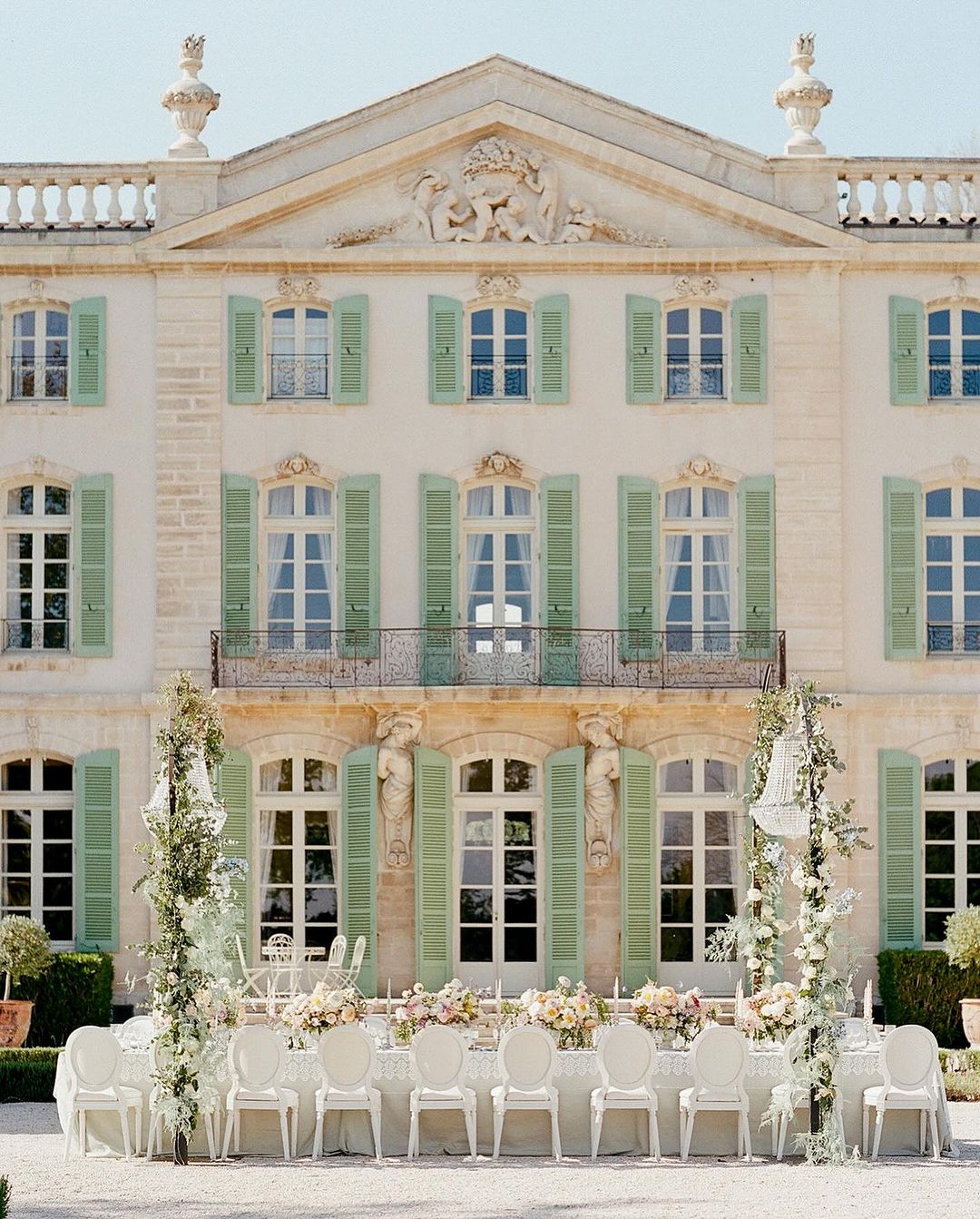Interfaith Marriage Advice: Navigating Different Faith Traditions
- Author: Natali Grace Levine
- Reading time: 6 min 23 sec
- Publication date: 04/16/2024
- Updated: 01/20/2025
In an increasingly diverse world, more and more couples are finding themselves navigating the joys and complexities of interfaith relationships. While honoring two distinct faith traditions can present unique challenges, it also offers the opportunity to create a rich, multifaceted life together. This comprehensive guide aims to equip interfaith couples with the tools and insights needed to build a marriage that celebrates your diverse backgrounds and helps your love thrive.
Whether you're newly engaged or have been married for years, this article will take you through the common hurdles of interfaith marriage, provide a thoughtful roadmap for making it work, and offer top tips from seasoned couples who have been there before. Get ready to embark on an enlightening journey as you learn to cherish your differences and strengthen the unbreakable bond of your partnership.
Find Your Perfect Wedding Vendors
The Challenges of Interfaith Relationships
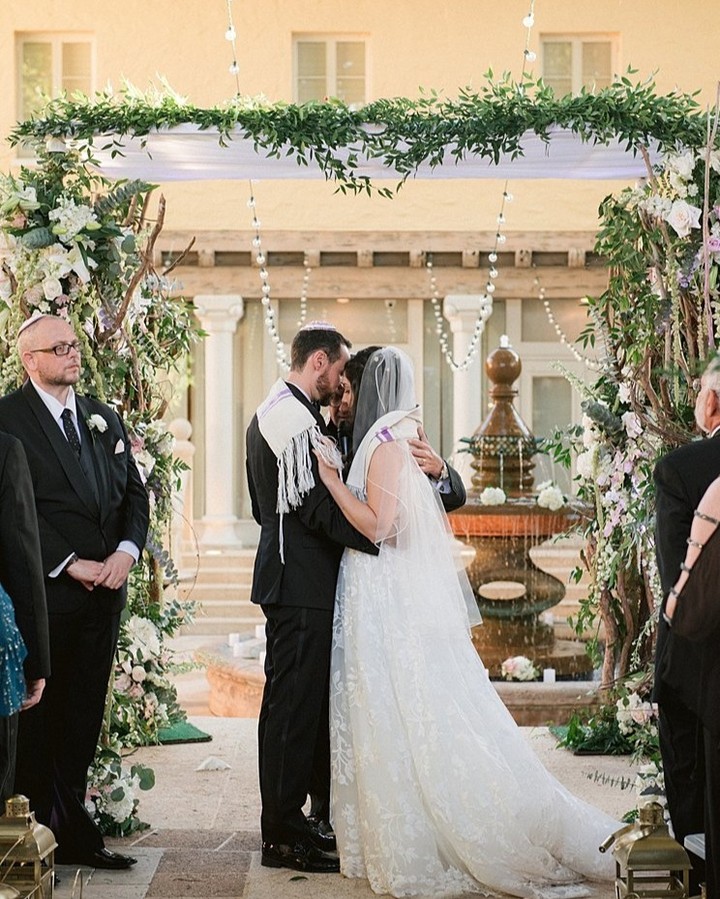
Navigating cultural and interfaith marriages can come with its fair share of challenges. From reconciling differing religious beliefs to managing family expectations, there are several key hurdles that couples must thoughtfully address. Here's a deeper look at some of the most common obstacles.
Reconciling Differing Religious Beliefs
One of the primary challenges in an interfaith marriage is finding common ground between divergent religious beliefs and practices. Each partner may have deeply rooted traditions, rituals, and values that are core to their identity and spirituality. Accepting and respecting these differences, while also seeking to understand them, is crucial. Couples must be willing to have open and honest dialogues about their faiths, find creative compromises, and remain flexible as their relationship evolves.
For example, one partner may observe certain dietary restrictions or holy days that the other does not. Or they may have vastly different perspectives on the role of religion in daily life. Navigating these contrasts requires patience, empathy, and a genuine commitment to learning about each other's beliefs. Couples should aim to find a middle ground where they can both feel respected and fulfilled, even if their specific practices differ.
Additionally, interfaith couples must consider how their religious differences may impact important life events and milestones. Questions around wedding ceremonies, baptisms, bar/bat mitzvahs, and funeral rites can become points of tension if not addressed thoughtfully. Open communication, creative blending of traditions, and a willingness to compromise are essential for overcoming these hurdles.
It's also important to note that religious beliefs can evolve over time, even within a single individual. What may have seemed like an irreconcilable difference at the start of a relationship could shift and change as one or both partners deepen their spiritual journeys. Maintaining flexibility and a spirit of curiosity is key to navigating these dynamic belief systems. One of the ways to make interfaith relationships work is by embracing these changes with openness and understanding.
Managing Family Pressures
Another significant obstacle for interfaith couples is navigating the expectations and opinions of their families. Parents, grandparents, and extended family members may have strong views about the interfaith nature of the relationship, based on their own cultural or religious upbringings. This can create tension, conflict, and pressure for the couple.
For instance, a partner's family may insist that the wedding be held in a specific religious venue or that any children be raised exclusively in one faith tradition. Or they may express disapproval or even rejection of the relationship altogether. These family dynamics can put a significant strain on an interfaith couple, testing the strength of their bond and their ability to maintain boundaries.
To mitigate these challenges, it's essential for partners to have honest, empathetic dialogues with their respective families. Explain your commitment to each other and your desire to forge your own unique path as a couple. Emphasize that you're not asking them to change their beliefs, but rather asking for their support and acceptance. Establishing clear boundaries is also crucial. Make it known that while you value their input, the final decisions about your relationship and family life will be yours to make. With patience and compassion, you can often find a way to honor both families' traditions and perspectives, even if complete alignment isn't possible. In some cases, couples may need to limit family involvement or set firm limits on certain requests.
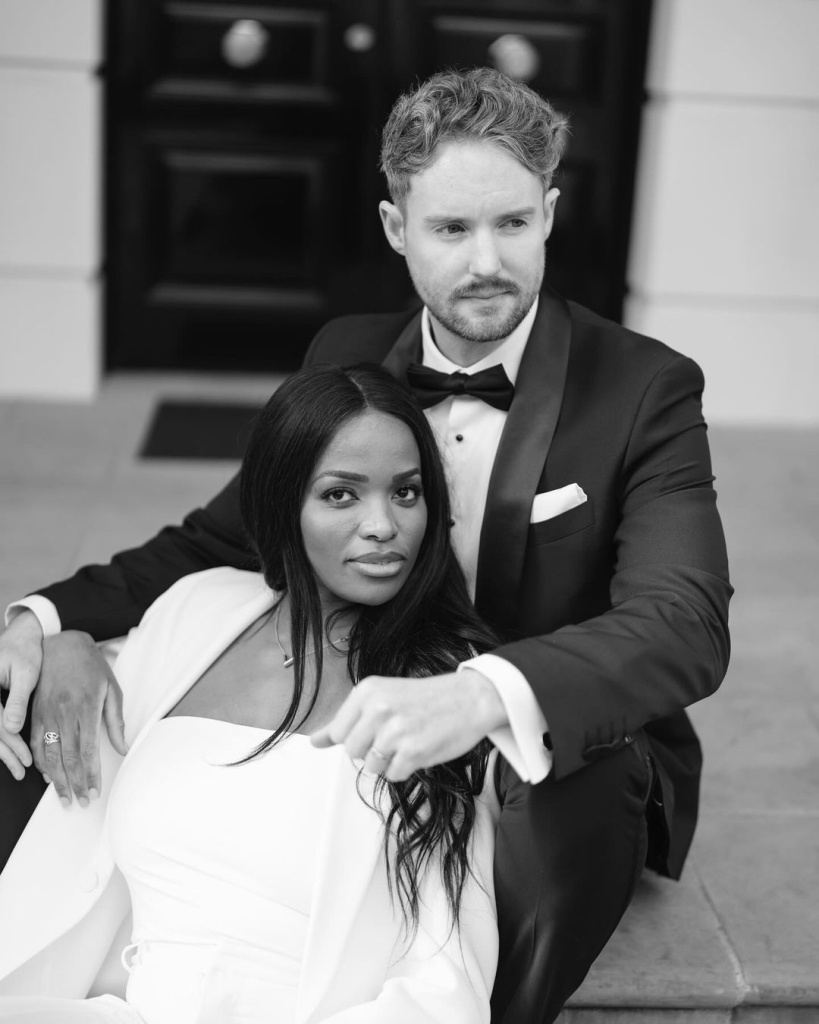
Deciding on Raising Children
One of the thorniest issues for interfaith couples is determining how to raise any future children. Decisions around religious upbringing, holiday celebrations, and moral values can be highly complex and emotionally charged. For example, a couple may disagree on whether to baptize their child, have them undergo a bar/bat mitzvah, or celebrate both Christmas and Hanukkah. They may also clash over the role of religious instruction, attendance at religious services, and exposure to different faith traditions. These choices can become significant sources of tension if not addressed proactively.
In some cases, couples may decide to raise their children exclusively in one faith tradition. In others, they may choose to expose their kids to both religions and allow them to ultimately choose their own spiritual path. There's no one-size-fits-all solution, but the key is to find an approach that honors both partners' backgrounds while prioritizing the well-being and unity of the family.
Building a support network can be immensely helpful. Seeking guidance from religious leaders, attending interfaith parenting workshops, or connecting with other interfaith families can provide valuable perspective and strategies. With care, creativity, and a commitment to compromise, couples can navigate this complex issue in a way that strengthens their family bond.
Balancing Traditions and Customs

Blending two distinct faith traditions can be logistically and emotionally complex, prompting the question: can interfaith relationships work? Couples must find creative ways to honor both of their heritages in their relationship, home, and family life. This could involve anything from melding wedding rituals to establishing new holiday traditions.
It's important to be mindful of the emotional significance that certain customs hold for each partner. Taking the time to understand the deeper meanings behind traditions, and finding ways to honor them, can help foster a sense of unity and belonging. Blending traditions can also apply to everyday family life. Couples may need to compromise on everything from dietary restrictions to daily prayer routines. Finding creative compromises, such as establishing "fusion" recipes or alternating religious observances, can help bridge these gaps.
Ultimately, successfully balancing traditions and customs in an interfaith marriage requires open communication, mutual respect, and a willingness to get a little bit creative. By approaching this challenge with care and flexibility, couples can build a home that celebrates the rich diversity of their backgrounds.
Communication Tips for Interfaith Couples: Questions to Ask
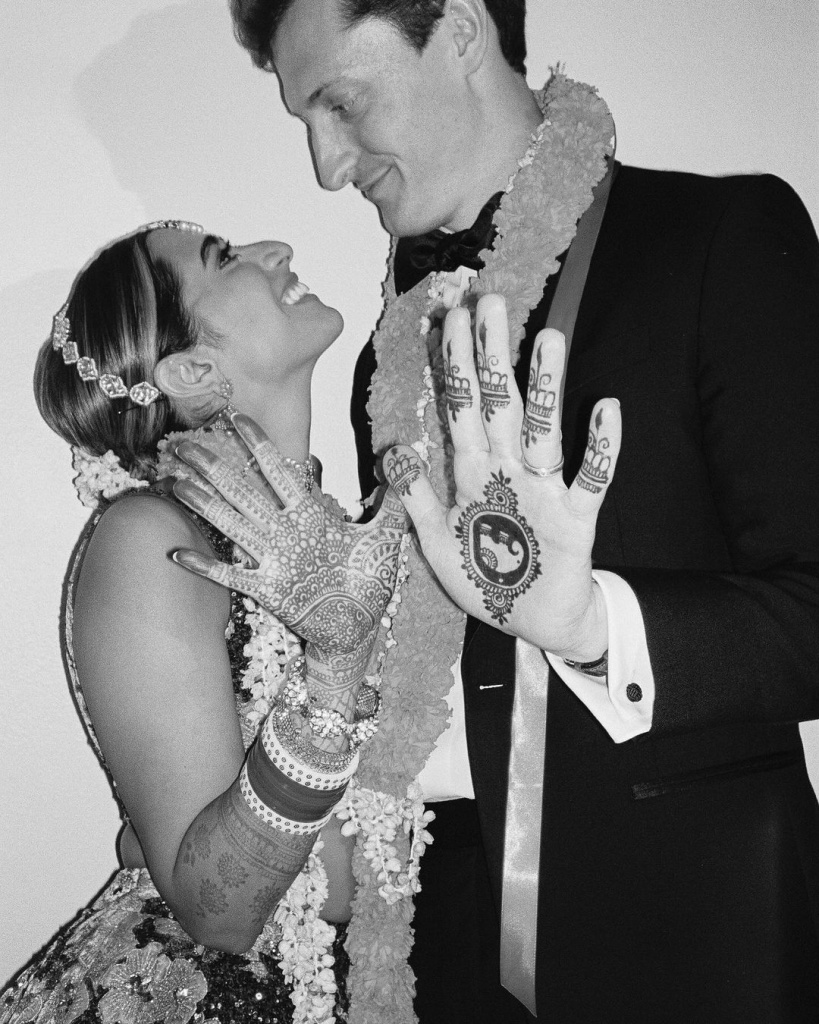
Open and honest communication is the foundation for any successful interfaith marriage. Discussing sensitive topics like religious beliefs, family expectations, and plans for the future can feel daunting, but they are crucial conversations to have. To help guide you, here are 25 key questions for you and your partner to consider:
- What are the core tenets and practices of your respective religions? What do you each find most meaningful about your faith?
- How do you envision incorporating both of our religious traditions into our wedding ceremony and marriage?
- How important is it to you that our children be raised in one faith tradition versus exposed to both?
- What holiday celebrations are most significant to you, and how do you want to honor them as a family?
- Are there any religious dietary restrictions or observances that will impact our daily life as a couple?
- How do you feel about attending religious services or events related to my faith tradition?
- What role do you see religion and spirituality playing in our household and our approach to parenting?
- Are there any non-negotiable elements of your faith that you absolutely must preserve in our marriage?
- How will we handle differences of opinion or conflicts that arise around religious issues?
- What are your thoughts on having a religious officiant versus a civil ceremony for our wedding?
- How do you plan to involve our respective families in religious traditions and decision-making?
- Are there any unique cultural customs from your background that you want to incorporate into our marriage?
- What compromises or blending of traditions are you open to, and where might we need to draw firmer boundaries?
- How will we navigate sensitive life events like baptisms, bar/bat mitzvahs, or funerals that may differ between our faiths?
- What concerns or hesitations do you have about merging our religious identities?
- If we decide to have children, how will we determine their religious affiliation?
- Are there any religious or cultural gender roles or expectations that we need to discuss and align on?
- What are your thoughts on praying together, attending services together, or engaging in joint spiritual practices?
- How might our religious beliefs impact our approach to major life decisions like career, finances, or end-of-life planning?
- In what ways do you hope our differing backgrounds will enrich our marriage and family life?
- What strategies do you plan to use to resolve conflicts or disagreements related to religion?
- How will we ensure that both of our faith traditions feel equally honored and respected?
- Are there any religious or cultural taboos that we need to be mindful of in our relationship?
- How do you propose we navigate the complexities of blending holiday traditions and celebrations?
- What concerns do you have about the long-term sustainability of our interfaith partnership?
By openly discussing these questions - and any others that arise - you and your partner can build a strong foundation of trust, understanding, and compromise. This will equip you to navigate the unique joys and challenges of an interfaith marriage with care, creativity, and an unshakeable bond.







